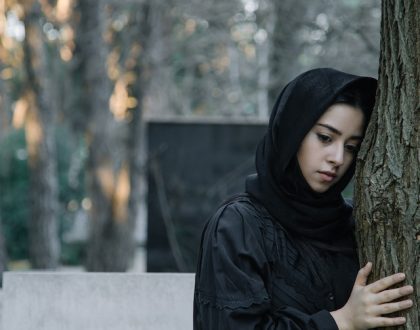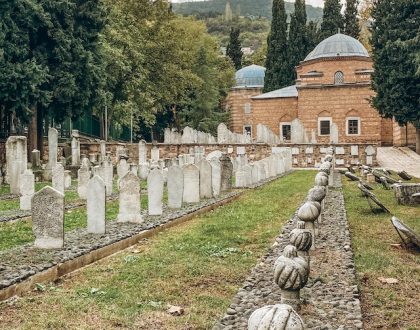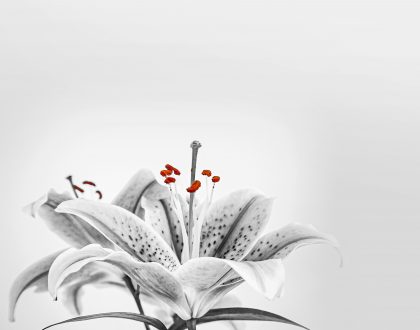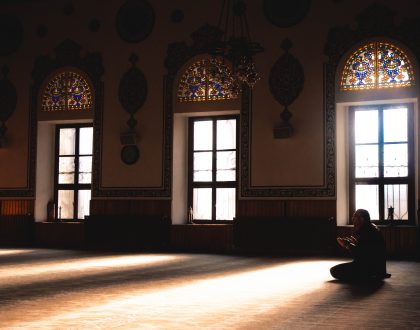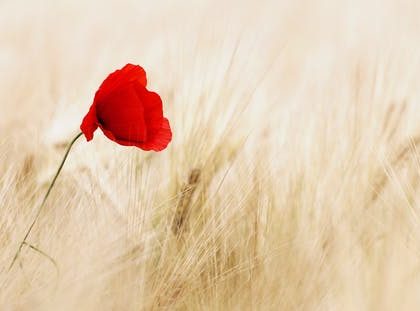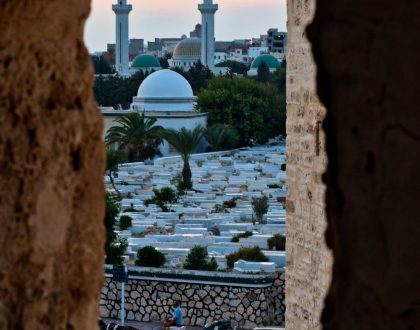Why do we throw three handfuls of soil into the grave before filling it?
Abu Hurayrah (may Allah be pleased with him) narrated that the Messenger of Allah (peace be upon him) performed the funeral prayer on a deceased (Muslim) and then came to his grave and threw...
Read More
What can we do to benefit the deceased?
What will reach the deceased in their graves? As per the well-known hadith, when someone dies three things continue to benefit them in their grave. These are charity given on their behalf, beneficial knowledge...
Read More
Ghazali on remembering death V – carrying jewels
Acute regret Imagine you are in a dark cave filled with stones, and your friends urge you to pick up the stones and carry them back with you to the exit. You think they...
Read More
Ghazali on remembering death III – aspects of the soul
The People of Allah are disconnected from dunya On the topic of remembering death, dhikr al mawt, Ghazali talks about the people of Allah – those with gnosis – their state, their connection with...
Read More
Ghazali on remembering death II -keeps life balanced
Remembering Death The tenth and final chapter of The Forty Principles of the Faith is about death. Imam Ghazali chose to end his book, which is a summary of the great tome, Ihya Ulum...
Read More
Ghazali on remembering death I
Remembering Death The tenth and final chapter of The Forty Principles of the Faith is about death. Imam Ghazali chose to end his book, which is a summary of the great tome, Ihya Ulum...
Read More
Is it permissible to have a gravestone?
In general it is permissible to have a small structure constructed over a grave and have a gravestone to mark it. The structure should be humble and not higher than a handspan. Graves From...
Read More
What duas can you recite for a good death?
There are various duas for a good end to one’s life. Ibn ‘Umar heard a man wishing for death, and said: Do not wish for death, for you will surely die; rather ask Allah...
Read More
Is organ donation permitted in Islam?
I am frequently asked whether it is permissible to donate organs in Islam. The answer is that apart from certain restrictions, it is a matter of personal choice. What is organ donation? Organ donation...
Read More
How to perform Salatul Janaza
The Islamic Funeral prayer Salatul Janaza is performed in congregation to seek pardon for the deceased and all dead Muslims. It is Fard al Kifaya, a collective obligation upon Muslims, which means that at...
Read More
Be fearful of a day when you shall return to Allah
Allah Almighty says; On the Day when every soul will come pleading for itself, and every soul will be paid in full for what it has done, and they will not be wronged. An-Nahl:111...
Read More
Can you hold a khatam for the deceased? Should you mark death anniversaries? Can you attend non-Muslim funerals?
Can you hold a Khatam al Quran or recite the Quran for the deceased Widespread practice The practice of holding khatams is so widespread in the community. Probably more than 80 percent of people...
Read More
How long is iddah for widows? Do older women need to observe iddah?
How long is the mourning period in Islam Mourning lasts for three days for everyone except the widow. The widow has to mourn four months and ten days, as stipulated in the Quran: And...
Read More
How to Pack for the Afterlife
What Have You Packed? Being Prepared to Face Death Whenever you go on a journey you pack for it. Our most significant journey is to the Hereafter to meet Allah the Almighty, and so...
Read More






